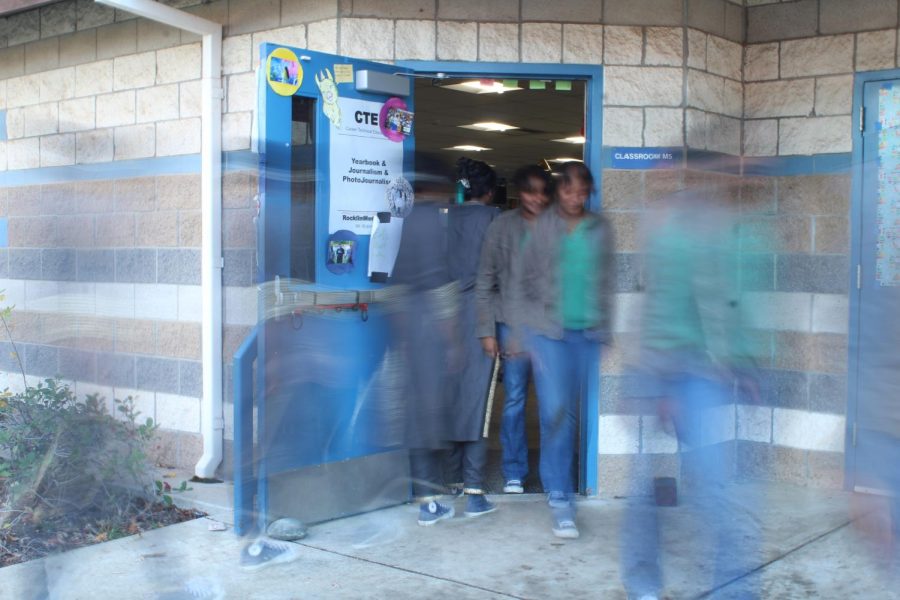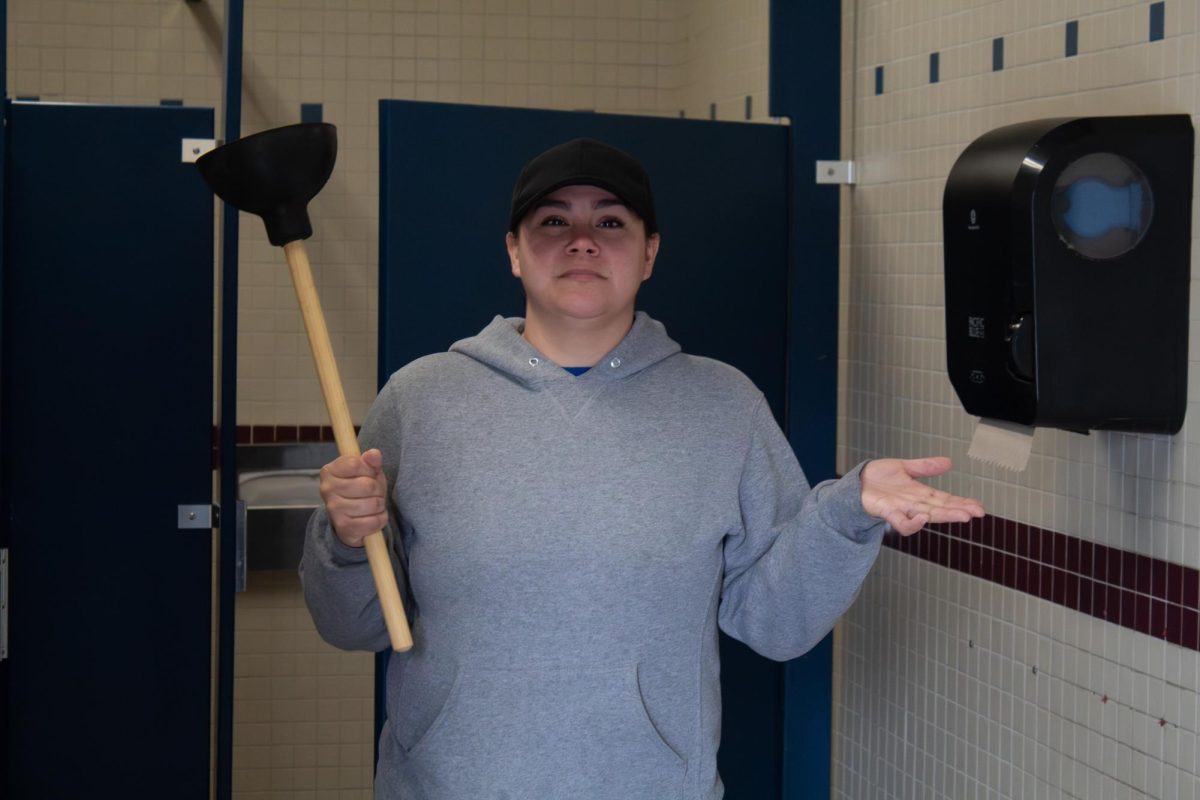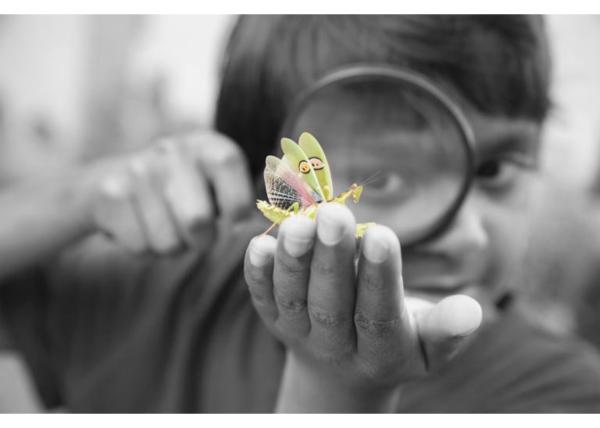The Danger of Sterotypes
“It’s completely different, especially [with] the traditions and the cultures your parents carried to here.”
March 7, 2023
In today’s society, stereotypes are something that have been normalized over time that continue to affect foreigners and first generation children. These labels are harmful and have become standardized. Expectations that mount on top of these beings’ feelings are not taken into consideration.
“If you’re born in America,” said Saraswathi Murugan, Rocklin High School (RHS) 10th grader, “you’re raised with this mindset that it’s [America] superior, it’s better.” Being a child of immigrant parents, it was not herself or her parents that had to adapt to American culture; it was the atmosphere around her that had to get use to change. Students around her had fallen prey to labels and stereotypes that only told half the story. She said, “People would literally, like, yell across the classroom… just like, ‘oh yeah, you failed that test? I bet your parents are really mad’ when in fact, my parents don’t care how many tests I fail.” Not all immigrant families are the same. In fact, the only similarity they have is moving from one country to the US yet society will deem them all the same. The community needs to adapt and embrace new changes as not only are immigrants new to us, but we are also new to them.
A part of the assumption that majority foreign students are all smart is due to how their parents raised them and not purely because of ethnicity. Being raised with different mindsets influences how the kid sees themselves and their effort to try: “When you’re raised with the expectation that you can do good and you are capable of getting straight A’s, it kind of gets ingrained in your head that you can [do that expectation] too… It’s more of like ‘Oh, I know you can do it and I know your capability so you’re expected to get all A’s.’” It is not only the ‘strict parents’ scenario that explains the ability behind intelligence, but also the child themselves; they add onto their own pressure and get in the mindset that they have the capability to achieve above average.
Sara struggles with choosing pathways for the future: to choose her own interests with the guilt of her parents or to choose her parents’ expected pathway at the cost of her mental health. Having parents who risk a new life to come to the states and the expectation of success is hard to decipher from one’s own passions.
“If you really consider what your parents took to sacrifice to get to America…for them to get here, all that stuff, it feels wrong almost to stray from what they tell you to do and what everyone else is telling you to do because you feel like you won’t fit in.”
High school is its own struggle; it’s a time that highlights what they’d like to pursue as a career to colleges. “The foundation of high school classes are what you build and how you show colleges what you’re interested in, but I mean, the amount of stress is just like writing the classes down and picking what you like versus what you should be picking is hard.” That pressure is like carrying two mental boulders on each shoulder, each having a long-term consequence of guilt/unhappiness: guilt from not carrying out those parents’ expectations, or unhappiness with not being able to dive deeper into one’s own interests. Those stereotypes that label immigrants cover their struggles, and give them a single identity.
Moving is often for the better yet it leaves children feeling lost with identity, having to separate their cultural and American identity. “I was born in Virginia and I like all the things you like,” Sara exhausted. “I was raised with the same TV shows, honestly the same food 90% of the time except you take one look at me and you decide … I’m good at everything I study at, my parents are strict and they’re mean … and I’m gonna grow up to be an engineer and a doctor.” It is not only being indifferent to their peers, but the subtle signs of discomfort that feel like prejudice rather than innocence. “It’s not like being shoved in a trashcan but like, these subtle passive-aggressive comments that you get that’s based on, you know, your race or what your parents expect you to do, or how well you even did on a test and that’s where kind of the prejudice starts. People start to just enforce stuff that’s not true.”
Natasha Cattolico, an RHS language arts teacher, added on that, “I think all of those subtle looks can become cumulative and so they can all become harmful. Especially if someone is subjected to some of those experiences often.” She personally mentioned that being exposed to that atmosphere, it almost becomes a constant and they have to learn to adapt to it. “It kind of becomes the water someone swims in… and [that] you get used to, sometimes, feeling a certain way.”
On a global level, there is some truth to these generalizations, but it does not apply across the board.
“Anytime you generalize about a whole group of people,” explained Mrs. Cattolico, “it’s very dangerous because you are not seeing the individual stories that are behind somebody’s experiences.”
Even if she herself did not experience being shamed for being an immigrant child, Mrs. Cattolico believes that, “If their [students] individuality hasn’t been uplifted, you know, if they have not experienced all of the self-fulfilling, [and] self actualization properties of being one’s self…[then] how other people perceive them can affect their self-esteem.” Breaking out of these generalizations that surround them and self-discovering one’s true self allows for stereotypes to not be grouped to just X, Y, or Z. Affirming students’ individuality and letting them embrace their identity gives them the confidence to not be weighed down by society’s expectations of a typical foreigner.
Taking in her own childhood and having time to reflect back on what creates academic success, she firmly encourages that different experiences are not attributed to ethnicity, but rather contributing factors in one’s growth to success. In her family, Mrs. Cattolico talked of how she grew up with two parents who worked professionally while being fluent in English after immigrating. She had exposure to gain self-esteem that allowed her to thrive academically during her childhood. “There are a lot of factors that can contribute to somebody’s achievement or success that I think [when] somebody uses a stereotype like that, they are denying the importance of all of those contributing factors.”
However, it is not easy to overrule these assumptions no matter how dangerous they pose. Mrs. Cattolico feels that, “To minimize the danger of stereotypes, it’s kind of why I teach language arts…We talk about knowing more stories, knowing more experiences that other people have lived, that the multiple exposure to many different stories help us not to make those overgeneralizations.”



















